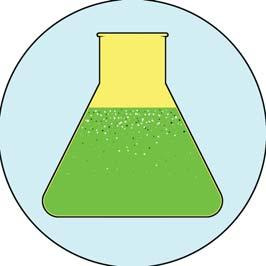147 companies controlled nearly 40 percent of the monetary value of all transnational corporations in 2007.
That’s the finding of a new study published in July 2011 by researchers at Switzerland’s ETH Zürich, based on an analysis of 43,060 transnational corporations (TNCs) located in 116 countries. Just 737 firms account for 80% of the value of all TNCs.
Factoids
Super-Consolidated TNC Control
There are currently over 500 Multilateral Environment Agreements
Since the Stockholm Conference of 1972, there has been a proliferation of treaties, agreements and institutions, but the money hasn’t matched the meetings and the decisions haven’t been matched with democratic participation. The multilateral system’s environmental response has been incongruously ad hoc and also ad nauseum. Among the indicators…
Just 3 companies control more than half (53%) of the global commercial market for seed.
The global commercial seed market in 2009 is estimated at 27,400 million.
The top 10 companies account for 73% of the global market (up from 67% in 2007).
Just 3 companies control more than half (53%) of the global commercial market for seed.
Monsanto, the world’s largest seed company and fourth largest pesticide company, now controls more than one-quarter (27%) of the commercial seed market.
Dow Agrosciences – the world’s fifth largest pesticide company – made a dramatic re-entry on the top 10 seed company list in 2009 following a seed company-buying spree that included Hyland Seeds (Canada), MTI (Austria), Pfister Seeds (USA) and Triumph Seed (USA), among others.
86% of the world's biomass is located in the global South.
While from space the planet may look green and rich with biomass, the dirty little secret of the biomass economy is that – just like fossilized carbon reserves (oil, coal, natural gas) – the living carbon reserves are not equally distributed. Worldwide, land-based vegetation stores an estimated 500 billion tonnes of carbon. However 86% of that (430 billion tonnes) is stored in the tropics and sub-tropics, while boreal and temperate eco-regions store only 34 billion tonnes and 33 billion tonnes, respectively.
The world's largest chemical, energy, agribusiness and pharma companies are investing in Synthetic Biology
Corporations investing in Synthetic Biology include 6 of the top 10 Chemical Companies, 6 of the top 10 Energy companies, 6 of the top 10 grain traders and the top 7 pharma companies.
World’s Top 10 Chemical Companies
The world’s 50 largest chemical corporations control a global market valued at $697 billion in 2009. The top 10 chemical firms account for about 40% of the market. “Petrochemicals,” by definition, are derived from petroleum and other fossil fuels. With soaring costs, unpredictable supplies and more challenging extractions, the industry is already making a transition from petrochemicals to biomass feedstocks. (In 2010, the world’s top 50 chemical corporations rebounded with combined sales of approximately $850 billion, an increase of 25.3% over 2009.)


